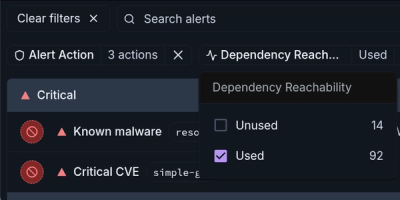
Security News
CISA Rebuffs Funding Concerns as CVE Foundation Draws Criticism
CISA denies CVE funding issues amid backlash over a new CVE foundation formed by board members, raising concerns about transparency and program governance.
symlink-dir
Advanced tools
Cross-platform directory symlinking
pnpm add symlink-dir
Lets suppose you'd like to self-require your package. You can link it to its own node_modules:
# from -> to
symlink-dir . node_modules/my-package
'use strict'
const symlinkDir = require('symlink-dir')
const path = require('path')
symlinkDir('src', 'node_modules/src')
.then(result => {
console.log(result)
//> { reused: false }
return symlinkDir('src', 'node_modules/src')
})
.then(result => {
console.log(result)
//> { reused: true }
})
.catch(err => console.error(err))
symlinkDir(target, path, opts?): Promise<{ reused: boolean, warn?: string }>symlinkDir.sync(target, path, opts?): { reused: boolean, warn?: string }Creates the link called path pointing to target.
Options:
overwrite - boolean - is true by default. When false, existing files at dest are not overwritten.Result:
reused - boolean - is true if the symlink already existed pointing to the target.warn - string - any issues that happened during linking (it does mean a failure).FAQs
Cross-platform directory symlinking
The npm package symlink-dir receives a total of 44,713 weekly downloads. As such, symlink-dir popularity was classified as popular.
We found that symlink-dir demonstrated a healthy version release cadence and project activity because the last version was released less than a year ago. It has 0 open source maintainers collaborating on the project.
Did you know?

Socket for GitHub automatically highlights issues in each pull request and monitors the health of all your open source dependencies. Discover the contents of your packages and block harmful activity before you install or update your dependencies.

Security News
CISA denies CVE funding issues amid backlash over a new CVE foundation formed by board members, raising concerns about transparency and program governance.

Product
We’re excited to announce a powerful new capability in Socket: historical data and enhanced analytics.

Product
Module Reachability filters out unreachable CVEs so you can focus on vulnerabilities that actually matter to your application.